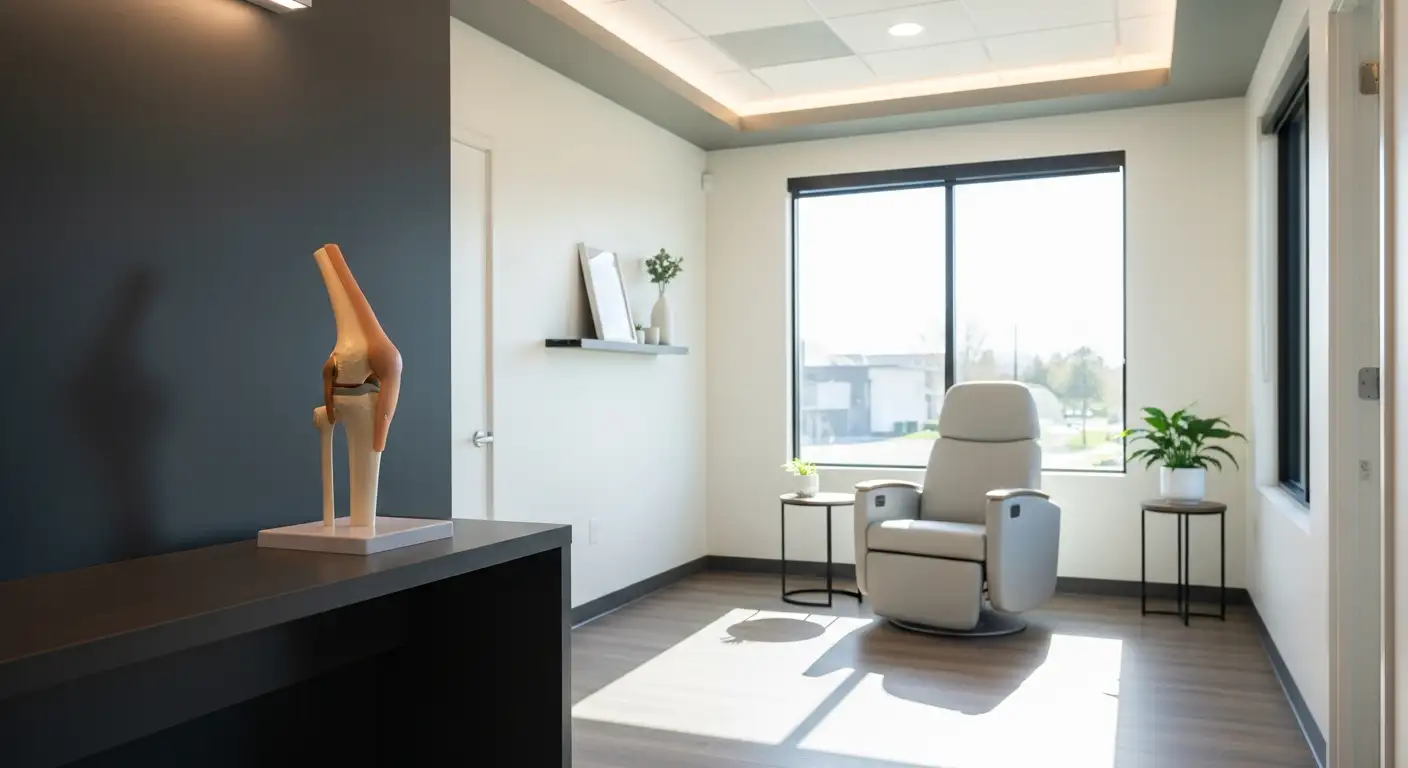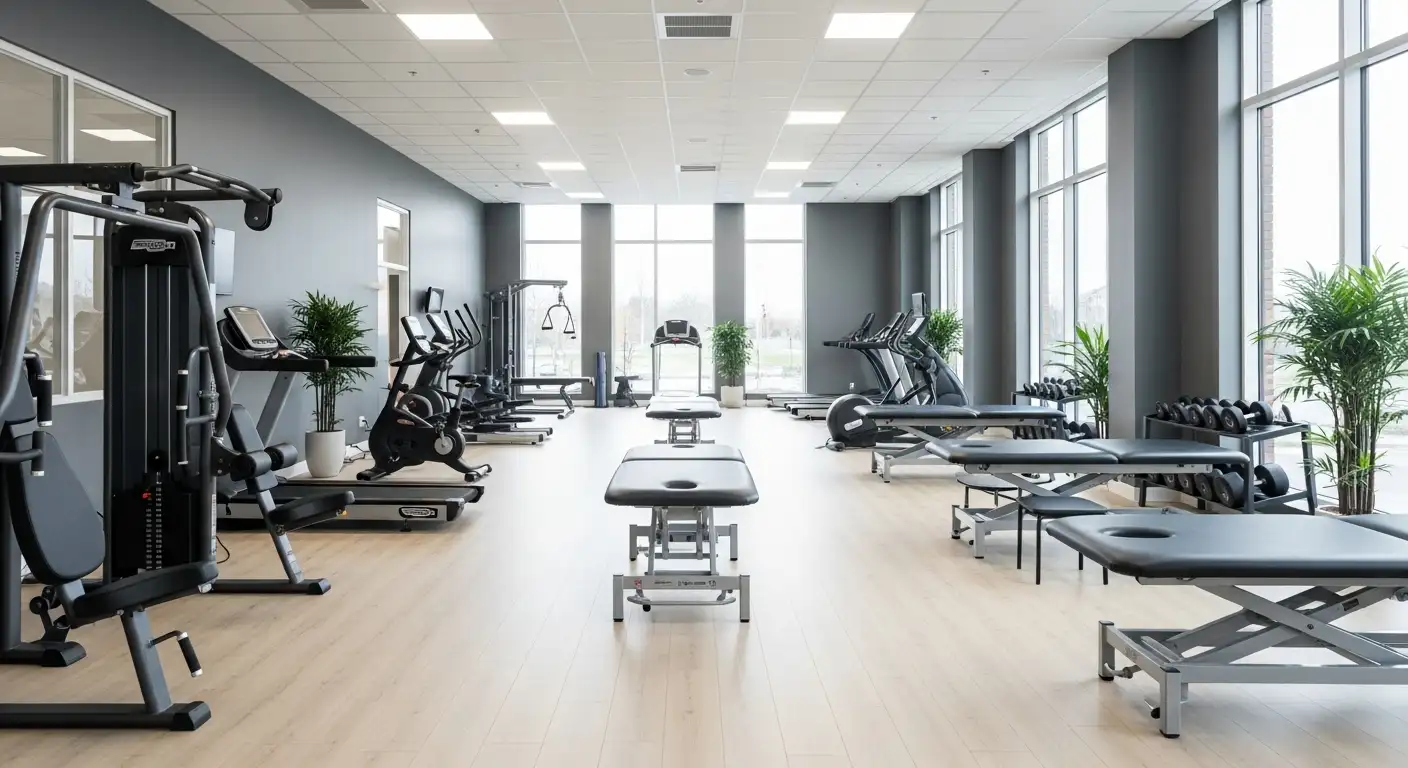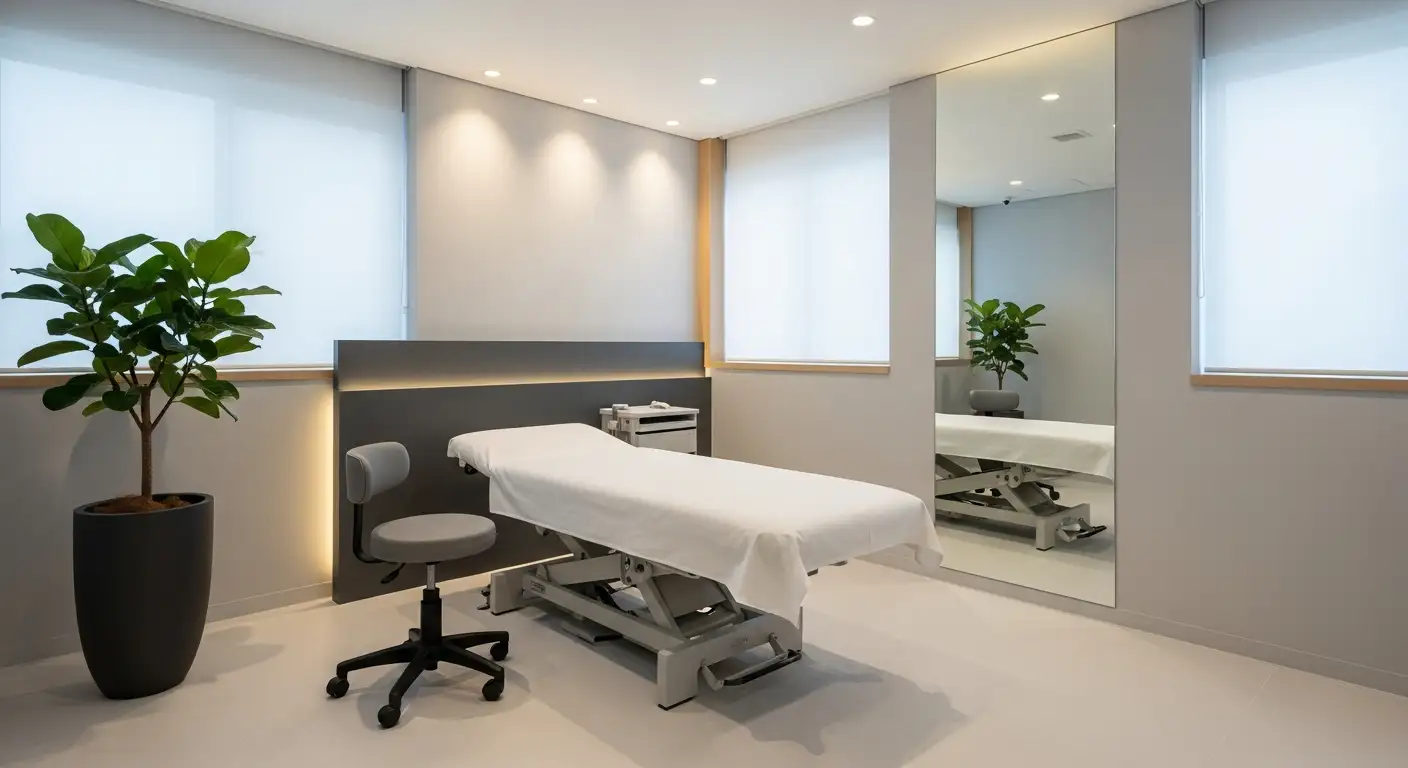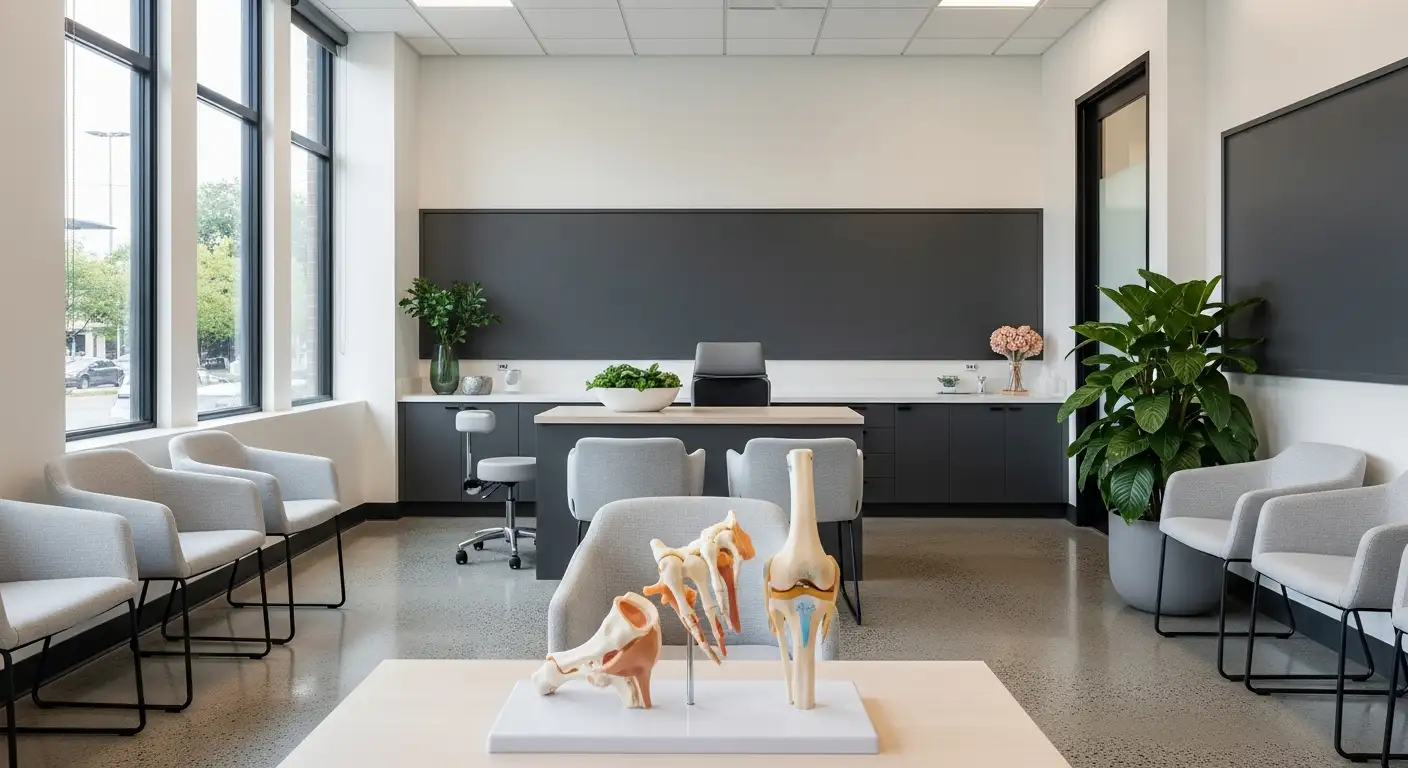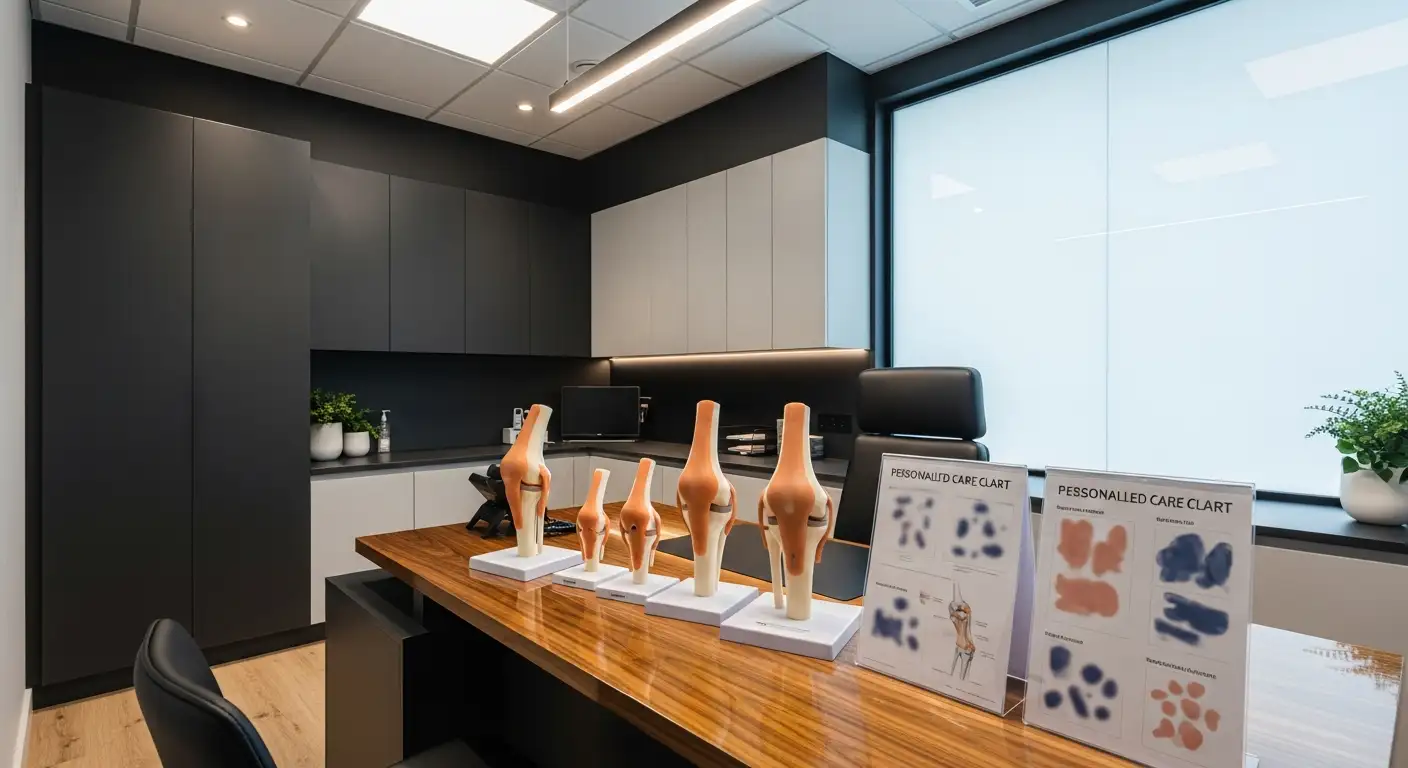Understanding Knee Popping
Knee popping is a common phenomenon that many individuals experience, particularly during activities like squatting or bending. Understanding the underlying causes of this occurrence is essential for anyone concerned about their knee health.
Common Causes of Knee Popping
Knee popping and cracking sounds can happen for various reasons. In general, these sounds are not alarming if they do not accompany pain or swelling. The primary causes of knee popping include:
- Rough surfaces of cartilage gliding against each other
- Tightening ligaments during movement
- The lining of the joint moving over the bones
For many people, these sounds occur when squatting down or performing a full motion, with uneven areas in the cartilage contributing to the sounds as they age [1].
| Cause | Description |
|---|---|
| Cartilage Roughness | Rough areas of cartilage can create sounds during movement. |
| Ligament Movement | Ligaments tightening may cause a popping sound when under tension. |
| Joint Lining Motion | The joint lining shifting over bones can create audible noise. |
Impact of Age on Knee Sounds
As individuals age, knee popping may become more frequent, particularly due to changes in cartilage. Over time, the smooth surfaces of cartilage can wear down, leading to conditions like osteoarthritis. This degenerative condition can cause increased noise in the knee joint, especially in individuals over 50, as chronic inflammation contributes to cartilage breakdown and other arthritic changes [2].
| Age Group | Likely Condition | Possible Symptoms |
|---|---|---|
| Under 30 | Minimal chances of osteoarthritis | Occasional popping with no pain |
| 30 to 50 | Early signs of cartilage wear | Mild popping, potential discomfort |
| 50 and older | Higher risk of knee osteoarthritis | Frequent popping, pain or swelling may occur |
Being aware of these factors can help individuals assess their knee health and seek appropriate solutions, especially if they notice worsening sounds or discomfort. For further insight on issues like knee popping out of place or related conditions following past injuries, additional resources are available.
Factors Contributing to Knee Popping
Knee popping can occur for various reasons, many of which are linked to muscle strength, specific conditions, and the history of past injuries. Understanding these factors can help identify why knees pop when squatting and whether to seek attention.
Muscle Strength and Knee Health
Muscle strength plays a critical role in maintaining knee stability and function. Weak muscles around the knee can lead to improper joint mechanics, potentially causing popping sounds during movement. Regular exercise that focuses on strengthening the knee extension muscles can enhance joint stability.
Strengthening exercises should include work on the quadriceps, hamstrings, and calf muscles. Below is a table outlining the recommended exercises for knee strength:
| Muscle Group | Recommended Exercises |
|---|---|
| Quadriceps | Squats, Lunges |
| Hamstrings | Deadlifts, Hamstring Curls |
| Calves | Calf Raises, Toe Taps |
Conditions Leading to Knee Popping
Certain medical conditions can contribute to knee popping. Arthritis is a notable example; it involves the inflammation of joints, resulting in cracking and popping as the cartilage surfaces wear down [4]. Other conditions may include chondromalacia patella, which refers to the softening and breakdown of the cartilage on the underside of the kneecap, potentially leading to additional sounds during movement.
Another contributing factor could be patellar tracking issues, where the kneecap does not move smoothly within its groove, causing popping noises. Understanding these conditions can assist with early detection and subsequent treatment.
Effect of Past Injuries on Knee Sounds
Past injuries can have long-term effects on knee joint health and functionality. Studies show that injuries sustained during youth, such as ligament tears or cartilage damage, often result in increased incidences of cracking and popping later in life [4].
It is critical for individuals who have a history of knee injuries to pay attention to any changes in knee sounds or associated symptoms. If knee popping is accompanied by swelling or pain, it may indicate a serious issue requiring medical attention. Additional resources for understanding knee-related injuries can be found in articles about knee popping out of place and exercise for stiff knee after surgery.
By addressing muscle strength, being aware of concurrent conditions, and understanding the effect of past injuries, individuals can better manage knee popping and work towards healthier knee function.
Exercises to Reduce Knee Popping
Knee popping can be a common issue, especially when performing exercises like squats. To alleviate this problem, incorporating specific exercises can strengthen the muscles around the knee, improve flexibility, and enhance overall knee alignment.
Muscle Strengthening Exercises
Muscle strength plays a significant role in knee health. Strengthening the glute, inner hip, and thigh muscles can be particularly beneficial in reducing knee pain during activities like squatting. The following exercises can help target these areas:
| Exercise | Target Muscles |
|---|---|
| Calf Release | Calves |
| Hip Flexor Release | Hip Flexors |
| Inner Thigh Squats | Inner Thighs |
| VMO Activation | Vastus Medialis Oblique (VMO) |
| Side Steps with Resistance Band | Glutes and Hips |
These exercises aim to enhance muscle stability around the knee joint, which may mitigate popping sounds when squatting.
Stretching for Knee Health
In addition to strengthening exercises, stretching is crucial for maintaining flexibility and promoting knee health. Tight muscles can lead to improper alignment and increased tension in the knee joint. Here are some beneficial stretches:
- Hip flexor stretches
- Gluteus maximum stretches - gluteus maximus stretch
- IT band stretches
- Band stretches - band stretches
Engaging in regular stretching can help reduce tightness and alleviate the sounds associated with knee movement.
Importance of Proper Form
Proper form during exercises like squats is essential not only for reducing knee popping but also for minimizing the risk of injuries. Correct squat form involves:
- Aligning the knees with the toes
- Initiating the squat from the hips
- Engaging the glutes throughout the movement
- Maintaining a straight back
Following these guidelines enables smoother movement of the knee joint and enhances overall effectiveness in targeted exercises [3]. Regular practice of these exercises and stretches can contribute significantly to better knee health and reduced popping sounds, ultimately enhancing performance.
Addressing Knee Pain while Squatting
Knee pain during squatting can be a significant concern for many individuals. Understanding the conditions affecting this discomfort and knowing preventive measures can help in maintaining knee health.
Conditions Affecting Knee Pain
Several medical conditions can lead to knee pain, particularly when squatting. Some common ones include:
| Condition | Description |
|---|---|
| Arthritis | A degenerative joint disease that can lead to pain and stiffness. |
| Loose Cartilage | Caused by injuries or degeneration, leading to popping or locking sensations in the knee [4]. |
| Chondromalacia Patella | The softening of cartilage on the underside of the kneecap may cause pain during movement. |
| Tendonitis | Inflammation of tendons around the knee often caused by overuse. |
Individuals experiencing knee pain should consult a healthcare professional for proper diagnosis and treatment, especially if the pain persists during daily activities or exercise.
Preventive Measures for Knee Health
Maintaining healthy knees involves a combination of strengthening exercises and proper technique. The following preventive measures are recommended:
Strengthening Muscles: Focus on exercises that build the muscles around the knee, such as the quadriceps, hamstrings, and glutes. Strong muscles provide better support and stability for the knee joint [1].
Proper Form: When squatting, ensure proper alignment. Engage the gluteus maximus and keep knees aligned with toes. Avoid allowing the knees to travel forward past the toes to reduce strain on the joint.
Warm-up: Incorporating a warm-up routine can prepare the muscles and joints for the demands of exercise. Stretches, such as the gluteus maximus stretch, can help improve flexibility and reduce stiffness.
Regular Exercise: Engaging in regular physical activity aids in maintaining muscle strength and joint health. This should include both strength training and flexibility exercises.
Avoiding Overtraining: Allow for rest and recovery between workouts to prevent overuse injuries. Ensure appropriate recovery time for knee-related issues like a calf tear.
By understanding these conditions and implementing preventive measures, individuals can work toward alleviating knee pain and enjoying squats without discomfort. Maintaining proper care for the knee will support its long-term health and functionality.
Managing Knee Clicking
Knee clicking, often experienced during activities such as squatting, can be a common phenomenon. It may feel similar to the sound of popping knuckles due to air bubbles getting trapped in the knee joint and subsequently bursting as the knee bends or extends. Although this process is generally harmless, persistent clicking may signal underlying issues that require professional assessment.
Causes of Knee Clicking
There are several potential causes of knee clicking:
Gas Bubbles: Tiny bubbles can form in the synovial fluid of the knee joint and collapse when bending or extending the knee, leading to a clicking sound. This is generally safe.
Osteoarthritis: For individuals aged 50 and above, knee osteoarthritis can contribute to cracks and sounds in the knee joint due to cartilage breakdown and chronic inflammation [2].
Injuries: Past injuries to the kneecap caused by pressure or falls can result in knee cracking sounds during squatting. If there is accompanying crunching or grinding, it is advisable to consult a physiotherapist to rule out any abnormal conditions requiring attention [2].
To further understand the sounds produced by the knees, consider monitoring symptoms and consulting a professional if issues persist.
Stretching Techniques for Knee Clicking
Incorporating stretching techniques can significantly help in reducing knee clicking, especially during warm-up exercises before squatting. Here are several effective stretches:
| Stretch Technique | Description |
|---|---|
| Foam Rolling | Use a foam roller to massage the quadriceps, hamstrings, and calves to relieve tension. |
| Deep Squat Stretch | Hold a deep squat position for 20-30 seconds to increase flexibility in the hips and knees. |
| Quad Stretch with a Rope | Use a resistance band or rope to gently stretch the quadriceps while standing. |
| Knee Flexion Gapping Stretch | While seated, flex the knee while keeping the foot stable to enhance mobility. |
These stretches aim to improve muscle elasticity and joint movement, which may alleviate the clicking sensation associated with knee movement [2]. Regular practice of these stretches can contribute to better knee health and decreased discomfort during activities, especially when the knees pop when squatting.
Dietary Tips for Joint Health
Diet plays a crucial role in maintaining joint health, particularly for individuals experiencing discomfort or noises in the knees, such as when they notice their knees pop when squatting. Incorporating anti-inflammatory foods and appropriate supplements can greatly support joint function and overall well-being.
Anti-Inflammatory Foods
Anti-inflammatory foods can help manage inflammation and joint discomfort, which may contribute to reducing knee clicking during activities. Common anti-inflammatory options include:
| Food Type | Examples |
|---|---|
| Spices | Turmeric (curcumin) |
| Fatty Fish | Salmon, sardines, and mackerel |
| Nuts & Seeds | Chia seeds, walnuts, and flax seeds |
| Fruits | Berries, oranges, and cherries |
| Vegetables | Leafy greens like spinach and kale |
Including these foods in daily meals can provide significant benefits for joint health. Regular consumption of omega-3 fatty acids found in fatty fish and the anti-inflammatory properties of turmeric can be particularly effective [2]. Additionally, maintaining a balanced diet rich in nutrients supports overall muscle strength, which is vital for knee stability.
Supplements for Joint Support
Certain supplements can also enhance joint health and alleviate discomfort. Considering supplementation can be beneficial, especially for individuals unable to meet their nutritional needs through food alone. Popular supplements include:
| Supplement | Benefits |
|---|---|
| Fish Oil | Rich in omega-3 fatty acids, promotes joint lubrication and reduces inflammation |
| Glucosamine & Chondroitin | Commonly used for arthritis; may slow cartilage breakdown |
| Turmeric/Curcumin | Anti-inflammatory properties that may support joint health |
| Vitamin D | Supports bone health and can improve muscle function |
| Collagen | Aids in maintaining joint integrity and flexibility |
For optimal results, it is advisable to consult a healthcare professional regarding suitable supplementation tailored to individual needs. Incorporating these dietary strategies can aid in the management of knee health and lessen the frequency of popping sounds associated with knee movement, enhancing overall quality of life.
